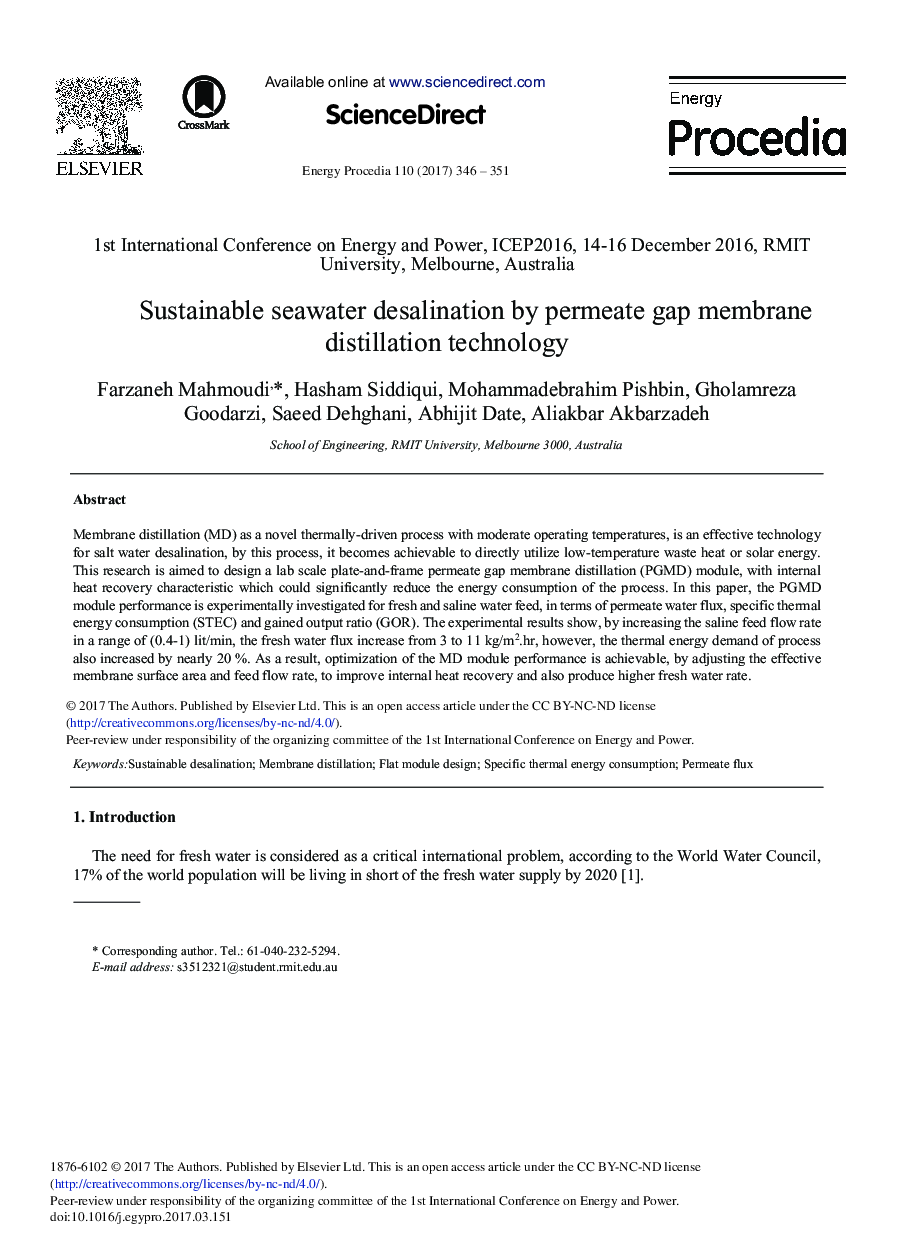| Article ID | Journal | Published Year | Pages | File Type |
|---|---|---|---|---|
| 5445750 | Energy Procedia | 2017 | 6 Pages |
Abstract
Membrane distillation (MD) as a novel thermally-driven process with moderate operating temperatures, is an effective technology for salt water desalination, by this process, it becomes achievable to directly utilize low-temperature waste heat or solar energy. This research is aimed to design a lab scale plate-and-frame permeate gap membrane distillation (PGMD) module, with internal heat recovery characteristic which could significantly reduce the energy consumption of the process. In this paper, the PGMD module performance is experimentally investigated for fresh and saline water feed, in terms of permeate water flux, specific thermal energy consumption (STEC) and gained output ratio (GOR). The experimental results show, by increasing the saline feed flow rate in a range of (0.4-1) lit/min, the fresh water flux increase from 3 to 11 kg/m2.hr, however, the thermal energy demand of process also increased by nearly 20%. As a result, optimization of the MD module performance is achievable, by adjusting the effective membrane surface area and feed flow rate, to improve internal heat recovery and also produce higher fresh water rate.
Related Topics
Physical Sciences and Engineering
Energy
Energy (General)
Authors
Farzaneh Mahmoudi, Hasham Siddiqui, Mohammadebrahim Pishbin, Gholamreza Goodarzi, Saeed Dehghani, Abhijit Date, Aliakbar Akbarzadeh,
